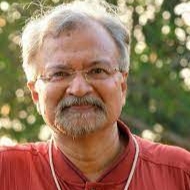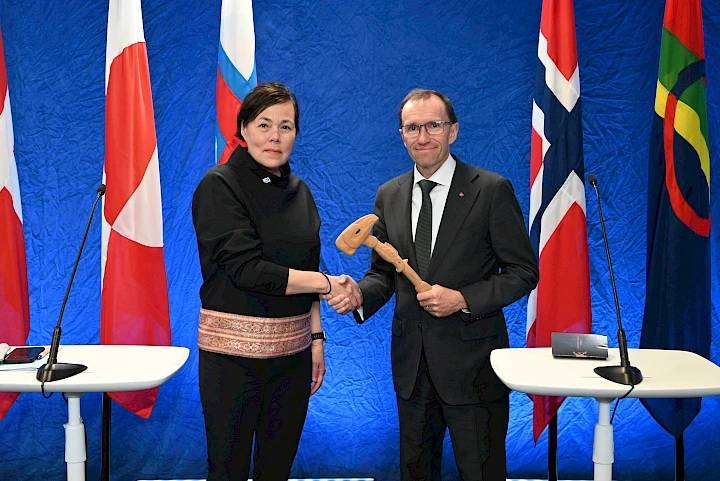The Kingdom of Denmark took over the chairmanship of the Arctic Council on May 12, 2025, not in quiet succession, but in the midst of one of the most troubled geopolitical climates the Arctic has seen in decades. In a move as symbolic as it is strategic, Greenland’s Foreign Minister, Vivian Motzfeldt, assumed the role, showing a theatrical shift in the internal dynamics of the Danish Realm and asserting Greenland’s rising diplomatic weight on the global stage.
Once a unique forum of consensus in an increasingly fractured world, the Arctic Council now finds itself exposed to the same geopolitical winds tearing through Europe, Asia, and beyond. Russia’s war in Ukraine shattered long-standing cooperation. The United States, under Donald Trump, is again eyeing Greenland as a strategic trophy. China is pushing deeper into Arctic infrastructure. The region’s carefully built architecture of peace, science, and Indigenous inclusion is creaking under pressure.
Norway’s previous term was about holding the pieces together. Denmark—and by extension, Greenland—now inherits a far more difficult task: not simply to preserve the Council, but to redefine its relevance at a time when the Arctic is no longer a zone of exceptionalism but a frontline of global rivalry.
Greenland: Between Copenhagen, Washington, and Independence
Denmark’s claim to Arctic status rests almost entirely on Greenland’s inclusion in the Danish Realm. Without Greenland, Denmark would lose its position among Arctic powers, a reality that has driven decades of sensitive and sometimes strained political engagement between Copenhagen and Nuuk.
Greenland’s current status was shaped by the 2009 Self-Government Act, which grants it autonomy over most domestic affairs and the legal right to declare independence. However, Denmark retains control over foreign policy, defence, and monetary matters. While Greenland’s economic dependence on Denmark, especially through the annual block grant, makes immediate independence unlikely, the political and symbolic aspirations remain strong.
A milestone was reached in 2021 when Greenland, the Faroe Islands, and Denmark agreed that Greenland would speak first at Arctic Council meetings and be the formal signatory on Arctic Council declarations. The move symbolized not just decentralization, but a decolonial turn in Arctic diplomacy.
Still, challenges abound. Greenland has limited economic alternatives to Danish funding. Experts estimate that at least 24 large-scale mining projects would be necessary to eliminate dependency on the block grant, an unlikely prospect in the near term. Oil exploration has failed to deliver viable production, and despite rich mineral deposits, political and environmental concerns complicate extraction.
Greenland’s past frustrations over representation have led to boycotts of Arctic Council meetings and diplomatic protests. Disputes over uranium exports, whaling quotas, and international trade bans have exposed gaps in Copenhagen’s ability, or willingness, to defend Greenlandic interests. Yet, a shared interest in asserting overlapping seabed claims in the Arctic Ocean before the UN Commission on the Limits of the Continental Shelf binds Denmark and Greenland together. The outcome of this legal process could shape sovereignty in the central Arctic for decades.
Trump’s Return and the Strains of Superpower Ambition
Donald Trump’s re-emergence on the world stage has generated anxieties across the Arctic, not least in Greenland. Reviving his provocative 2019 proposal to buy the island, Trump has now extended his rhetoric, even musing about annexing Canada, remarks that blur the line between political drama and strategic outmanoeuvre. These declarations emphasise a resurgent American nationalism, eager to expand influence in the Arctic through unilateral posturing rather than diplomacy.
Trump’s previous refusal to endorse the Arctic Council’s declaration—solely because it acknowledged climate change— indicated his administration’s disregard for multilateral cooperation and Indigenous rights, both foundational to Arctic governance. His return raises concerns about a renewed assault on those norms.
Greenland, however, is pushing back. Foreign Minister Vivian Motzfeldt has made it clear that while the island maintains security ties with Washington, it does not seek deeper political alignment with the U.S. “We don’t want to be Danes, but we don’t want to be Americans either,” she said, affirming Greenland’s pursuit of autonomy without subjugation to great power designs.
At the same time, China’s expanding Arctic footprint, anchored by infrastructure investments and ambitions to carve out shipping lanes, has disturbed Denmark and its allies. Though Beijing holds only observer status in the Arctic Council, its long-term strategic goals are being closely watched.
Positioning itself as a more balanced partner, Greenland is actively courting the European Union. With some of the world’s most sought-after rare earths lying beneath its icy terrain, Greenland is now looking to deepen mineral and energy cooperation with the EU. Buried deep in Greenland’s icy terrain are around 40 of the 50 critical minerals that the U.S. deems vital to its national security. The resources, from uranium to graphite, are crucial to manufacturing and global supply chains, though Greenland’s stores are largely unexplored and untapped. Motzfeldt’s recent visit to Brussels emphasized the island’s commitment to building durable, respectful partnerships, offering access to critical resources in exchange for reliable collaboration.
But tensions persist. Motzfeldt condemned recent reports of U.S. intelligence operations targeting Greenland as a betrayal by an ally. “We want reliable partnerships, not threats,” she said, warning that espionage and talk of military action only harden Greenland’s resolve to diversify its alliances. In this new Arctic reality, the island is navigating carefully between opportunity and overreach—asserting its agency in a region too long dominated by outside powers.
Council Cohesion, Russian Isolation, and the Road Ahead
Despite its limitations, the Arctic Council remains the central forum for managing regional issues. Its importance lies not in treaties or enforcement power, but in creating trust, fostering knowledge, and including Indigenous voices in decision-making.
Three elements make the Council indispensable: first, its unique inclusion of Indigenous organizations; second, its robust scientific networks that produce global data on ocean health, pollutants, and climate change; and third, its quiet but critical role in preventing geopolitical escalation.
But the Council now faces paralysis. Russia, the largest Arctic state, remains largely isolated after its 2022 invasion of Ukraine. Although technical collaboration resumed in some working groups in 2024, political engagement remains frozen. Unlike Norway, Denmark lacks a robust history of Arctic-specific dialogue with Moscow, making future efforts to engage Russia diplomatically more difficult.
A joint statement from the Council’s 14th ministerial meeting attempted to hold the line. It reaffirmed commitments to peace, stability, and sustainable development, but avoided the term “anthropogenic climate change,” likely to maintain consensus. Outgoing Norwegian chair Espen Barth Eide emphasized the urgency of warming, occurring three to four times faster in the Arctic than the global average, and called for the integration of Indigenous and scientific knowledge.
As the new chair, Denmark, through Greenland, must now translate consensus into action. The Council’s 30th anniversary in 2026 offers an opportunity to renew its mandate and reestablish its credibility. Greenland’s five-point agenda, centred on Indigenous empowerment, biodiversity, climate action, sustainable development, and ocean stewardship, provides a constructive roadmap.
Why the Arctic Matters?
What emerges in the Arctic matters for every species on the planet. The region acts as a thermostat for the Earth’s climate system, a barometer for environmental collapse, and a geopolitical testing ground for global cooperation.
If warming continues at current rates, not only will Indigenous communities lose their lands and ways of life, but coastal regions worldwide will face rising seas and severe weather disruptions. The Arctic is not just melting, it is sending distress signals for the entire Earth.
Denmark and Greenland’s chairmanship of the Arctic Council comes at a crossroads. The leadership they show now, in resisting militarization, strengthening Indigenous rights, promoting scientific integrity, and upholding environmental norms, could restore the Arctic Council as a model of cooperative governance in a fractured world.
But this moment calls for more than gestures. It demands political resolve, strategic clarity, and a renewed sense of global responsibility. As territorial ambitions intensify and ecological crises deepen, the Arctic Council must move beyond preservation, and it must reclaim and reinvigorate its founding spirit of dialogue and cooperation.
[Photo Credit: Minetta Westerlund / Arctic Council Secretariat]
The views and opinions expressed in this article are those of the author.

K.M. Seethi, Director, Inter University Centre for Social Science Research and Extension, is the Academic Advisor of the International Centre for Polar Studies at Mahatma Gandhi University, Kerala. He also served as ICSSR Senior Fellow, Senior Professor and Dean of International Relations at MGU.

